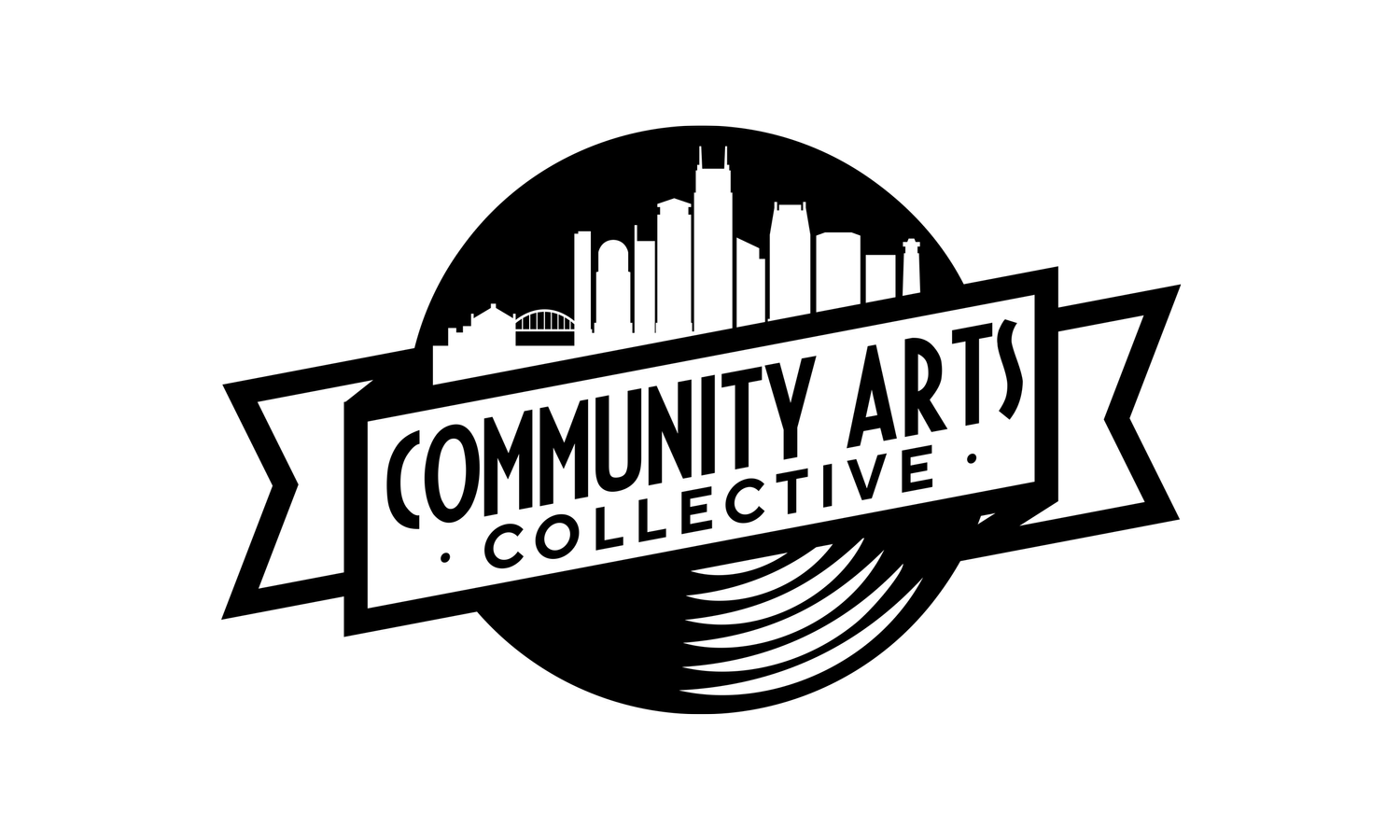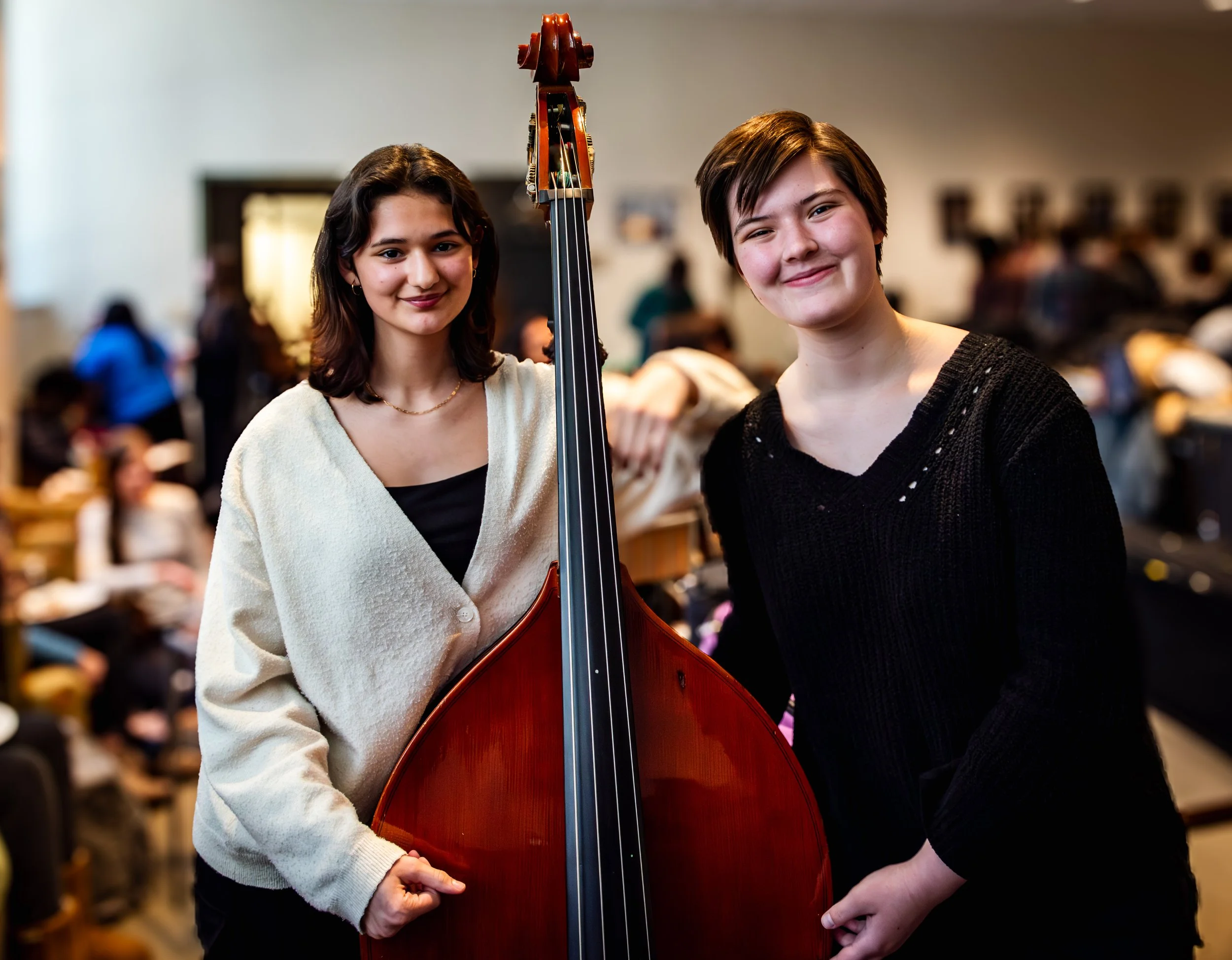About Us
The Community Arts Collective, a Nashville-based non-profit, was founded by Bryson Finney in 2024 with the mission of building community through music. Although officially established in 2024, the organization’s work began in 2018 with the launch of its flagship program, the “We Are Nashville Festival” uniting today’s creatives, develping tomorrow’s sound.
Bryson Finney, Founder and Director, is a songwriter, arranger and music educator in the Nashville area. His goal has always been to inspire young minds and ignite dreams which he believes can be accomplished through building community. “You can change a child’s mindset and trajectory in life simply by who and what you expose them to,” says Finney. Developing programing that unites creatives from the student to the professional, in an effort to inspire community and build meaningful connections is at the core of the Collective.
In 2024, the Collective introduced a new program called “Saturday Soundcheck” which blends artistry access, music development, and community building through song creation. Developed by Bryson Finney, Alice Walle, Marisa Frank, and DaJuana Hammonds during the summer of 2024, this immersive musical experience began in the fall. It offers students from around the city a chance to participate in a 2-hour casual song session led by local artists and music educators.
In all programing, we are committed to providing:
Access: Providing equitable access to a diverse array of local artistry, regardless of prior experience.
Development: Building partnerships to create spaces for musical development at all levels.
Community: Creating music-based experiences that inspire, build, and nurture a sense of community for all.
Our mission is to build community through music.
“You can change a child's mindset and trajectory in life simply by what you expose them to.”
— Bryson Finney
What are the benefits?
Why build community through music?
Academic Benefits
1. Enhanced Language and Literacy Skills
Active engagement in music improves phonological awareness, vocabulary, and reading comprehension. This is because music training enhances auditory discrimination and memory, which are critical for language development.
Source: Hallam, S. (2010). The Power of Music: Its Impact on the Intellectual, Social and Personal Development of Children and Young People.
2. Improved Mathematical and Reasoning
Music education has been linked to better mathematical skills due to shared cognitive processes like pattern recognition and reasoning. For instance, understanding musical rhythms can enhance a child's ability to grasp fractions and ratios.
Source: Vaughn, K. (2000). Music and Mathematics: Modest Support for the Oft-Claimed Relationship.
3. Strengthened Executive Functioning
Participating in music activities increases executive functions such as attention control, working memory, and cognitive flexibility. These skills are essential for academic success across subjects.
Source: Hennessy, S., & Lam, B. H. (2011). The Impact of Music Education on Academic Achievement.
Social Benefits
4. Enhanced Empathy and Social Skills
Group music-making fosters empathy and social understanding by requiring individuals to listen, cooperate, and respond to others in real-time. This collaborative environment nurtures interpersonal skills.
Source: Rabinowitch, T.-C., Cross, I., & Burnard, P. (2013). Long-Term Musical Group Interaction Has a Positive Influence on Empathy in Children.
5. Increased Sense of Belonging and Community Engagement
Community music programs promote social inclusion by bringing together individuals from diverse backgrounds to share in collective musical experiences, thereby strengthening community bonds.
Source: Odena, O., & Welch, G. (2007). Music and Social Inclusion: International Research and Practice in Complex Settings.
Emotional Benefits
6. Boosted Self-Esteem and Confidence
Regular participation in music classes has been shown to enhance children's social competence and self-esteem, providing them with a sense of achievement and belonging.
Source: Rickard, N. S., et al. (2013). Orchestrating Life Skills: The Effect of Increased School-Based Music Classes on Children's Social Competence and Self-Esteem.
7. Effective Emotional Self-Regulation
Music serves as a tool for emotional expression and regulation, helping individuals manage their emotions and cope with stress throughout life.
Source: Saarikallio, S. (2011). Music as Emotional Self-Regulation Throughout Adulthood.
Mental and Cognitive Benefits
8. Stress Reduction and Mental Wellbeing
Engaging with music can lower stress levels and promote mental health by triggering the release of neurochemicals like dopamine and serotonin, which are associated with pleasure and relaxation.
Source: Chanda, M. L., & Levitin, D. J. (2013). The Neurochemistry of Music.
9. Enhanced Brain Development
Music training leads to structural and functional brain changes, supporting cognitive development and neuroplasticity. These changes are particularly significant when training begins at a young age but are beneficial at any age.
Source: Schlaug, G., et al. (2005). Effects of Music Training on the Child's Brain and Cognitive Development.
These findings underscore the multifaceted benefits of community-based musical experiences, highlighting their role in fostering academic growth, social cohesion, emotional wellbeing, and cognitive development. While the research primarily focuses on children, many of these benefits are equally applicable to adults, making music a valuable lifelong pursuit for any one!



